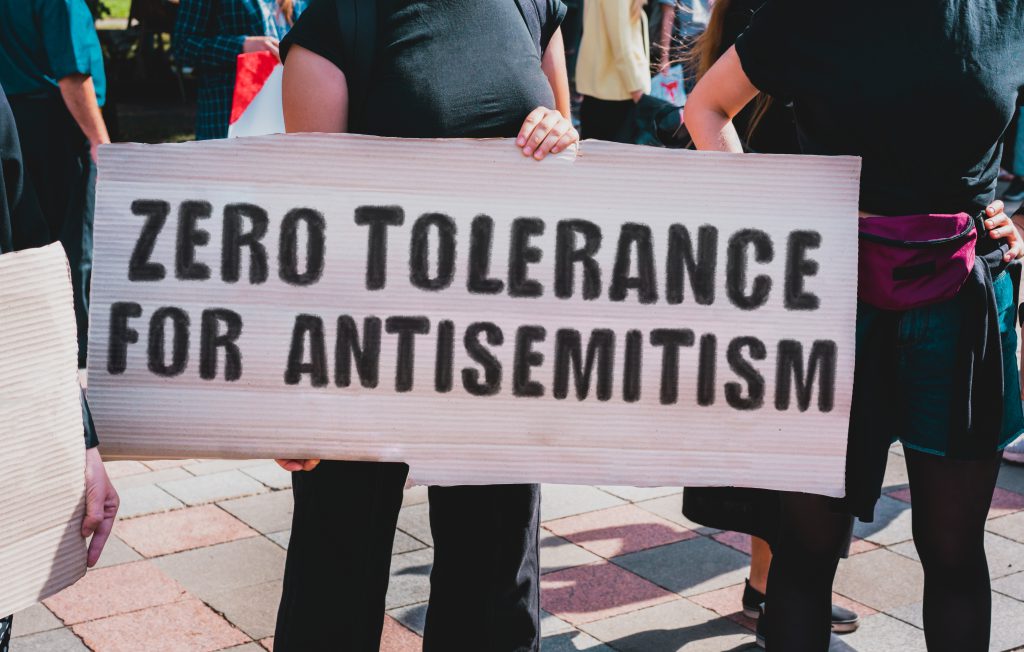50 Years after UN “Zionism Is Racism” Resolution, 82% of U.S. Jews Say they Are Zionists or Support Zionism.
Findings from the Jewish People Policy Institute’s (JPPI) November Voice of the Jewish People Index were released today. The monthly Index assesses the mood of American Jewry in light of significant developments.
To download the PDF file, click here
Is Zionism Racism?
This month marks 50 years since the 1975 UN resolution declaring that “Zionism is racism” (Resolution 3379). The resolution generated a broad public debate and led to harsh criticism of the UN and: even impaired the organization’s image. Sixteen years later, in 1991, the UN General Assembly adopted a contrary resolution (Resolution 4686), in which it announced that it was rescinding the comparison.
Nevertheless, the claim that Zionism is a racist movement is still prevalent in global public discourse and is used as a rhetorical tool against Israel. Does this rhetoric influence the Jewish community?
Most JPPI Index participants (59%) believe that “there is nothing racist in Zionism.” A quarter of respondents (28%) think Zionism itself is not racism, but “some interpret it as such.” Eight percent responded that Zionism is not racism, but that it does contain some racist elements, and 4% of Jews said they think that “Zionism is racism.”
When survey participants were asked what they think “the average American” believes, only 8% said that the average American sees Zionism as a movement with nothing racist about it. Thirty-six percent estimate that the average American thinks Zionism may be interpreted as racist even though it is not. Fourteen percent believe the average American views Zionism as racism, and another 22% think the average American sees Zionism as a movement that contains racist elements.
Anti-Zionism is Antisemitism
The survey also examined how respondents see the relationship between anti-Zionism and antisemitism. Most respondents (72%) believe that anti-Zionism is indeed antisemitism (“definitely” or “usually”). Seventeen percent think that anti-Zionism is antisemitic only “sometimes.” Only 11% of the Jews surveyed believe that anti-Zionism and antisemitism are completely different phenomena.
The gap between ideological groups is striking: among strong liberals, only 44% view anti-Zionism as antisemitic, compared with 92% among strong conservatives. Despite the tense public discourse, the JPPI Index continues to show a high level of support for Zionism: 70% of respondents self-identify as Zionists, and another 12% support Zionism. Only 3% define themselves as anti-Zionist.
Rising Antisemitism: American Jews See Danger from Both Right and Left
Against the backdrop of a sharp increase in antisemitic phenomena in the United States – both among the progressive left and within right-wing Republican circles – JPPI Index findings indicate deep and broad concern within the Jewish community, with 99% of respondents expressing concern about antisemitism. Sixty-two percent are worried about antisemitism coming equally from both sides (left and right); 20% are worried mainly about antisemitism originating on the left; and 17% are worried about antisemitism originating in right-wing quarters.
Mamdani’s Win
According to post-election, Mamdani received the support of about one-third of the Jewish vote in his successful bid to be New York City’s next mayor. Similarly, JPPI has found that almost two-thirds of American Jews (64%) perceive Mamdani, in the wake of his election victory, as both anti-Israeli and antisemitic – the sharpest increase since July. Nineteen percent of respondents consider Mamdani anti-Israel, but not antisemitic.
Deep Concern over Security
American Jews are currently deeply enmeshed in a debate over the rise of antisemitism in the United States. In view of this debate, we asked how Mamdani’s election affects respondent sentiment. The predominant emotion reported was “concern” (56% of respondents). A significant majority of respondents (67%) believe that Mamdani’s election will likely harm the security of New York’s Jews. Only 6% think that the security of the Jewish community is likely to improve.
Ahead of Hanukkah
The following data illustrates the strength of attachment to Jewish tradition: 82% of survey respondents plan to light candles on all eight nights of the holiday, and another 11% will do so on some of the nights.
JPPI’s monthly Voice of the Jewish People Index surveys are compiled by Institute fellows Shmuel Rosner and Noah Slepkov, with assistance from Yael Levinovsky. Prof. David Steinberg serves as statistical consultant.

